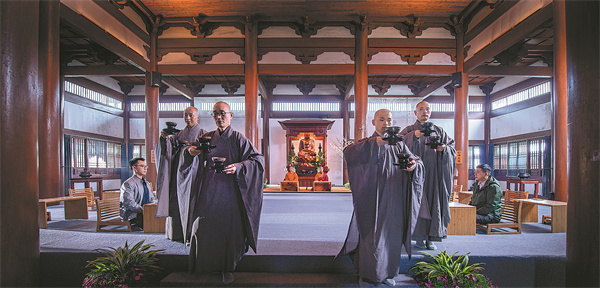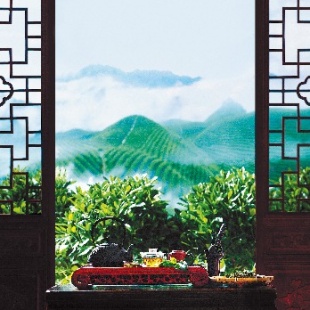A philosophical approach
Modern drinkers owe much to Lu Yu, the 'tea saint', who unlocked the mysteries of China's signature beverage, Cheng Yuezhu reports.


To cater to the growing number of visitors with an interest in tea culture, a folk edition has also been developed at Yuhang district. Hosted at cultural centers and boarding houses, these events allow the attendees to don Song Dynasty attire and drink tea under the guidance of tea makers and sommeliers.
Last year, traditional tea processing techniques and associated social practices in China were inscribed on UNESCO's Representative List of Intangible Cultural Heritage of Humanity. Both the Zisun tea-making technique and Jingshan Tea Ceremony were included.
While tea brought these areas cultural depth and economic prosperity, the legacy of the "tea saint" is never forgotten. Across the regions Lu set foot — Huzhou for example — his statues can often be seen and his stories are still being told.
One particular town in Huzhou's Wuxing district, Miaoxi, is a site of veneration for tea lovers around the country to visit and pay homage. According to historical texts, when Lu first arrived at what is today's Zhejiang, he stayed in Wuxing's Miaoxi Temple, located on the Zhushan Hill, where he became a close friend with Jiaoran, the abbot of the temple.
The two developed a close bond that lasted the next four decades, with Lu being inspired by Jiaoran to explore the philosophy of tea and modify his work. Even in death, Lu was buried near Jiaoran, on the hill, according to his will.





































